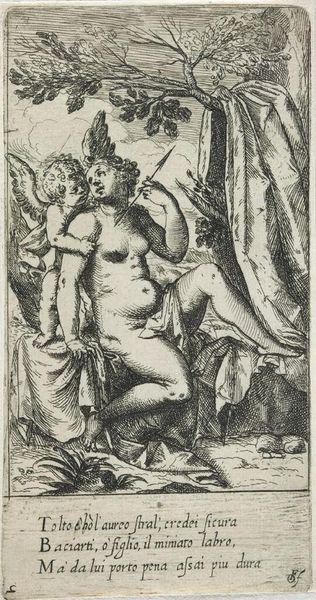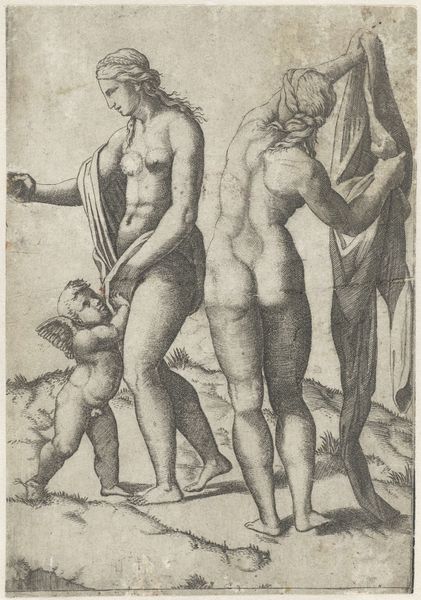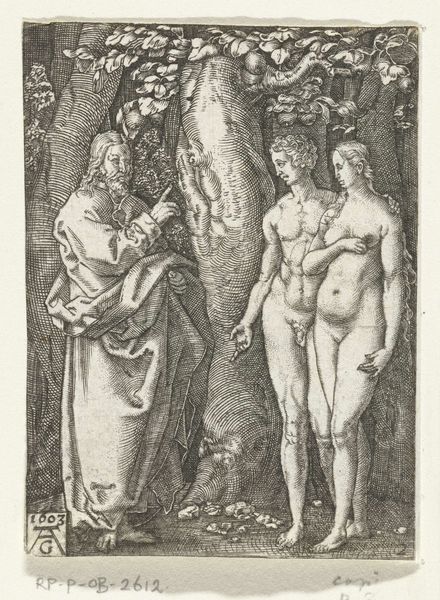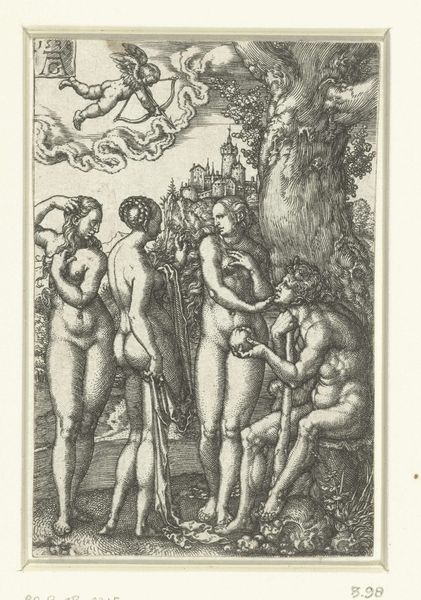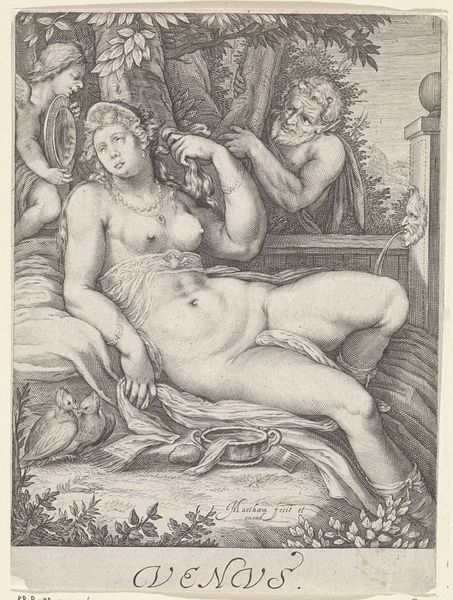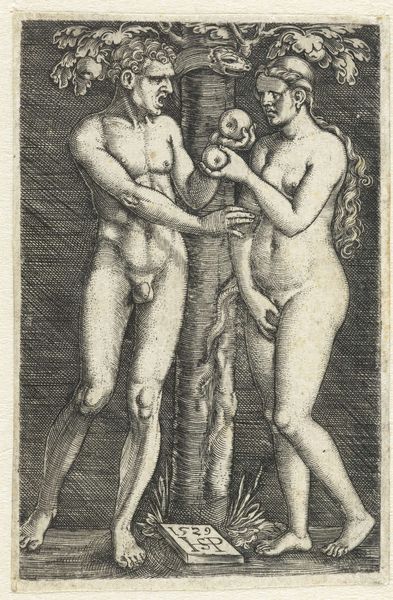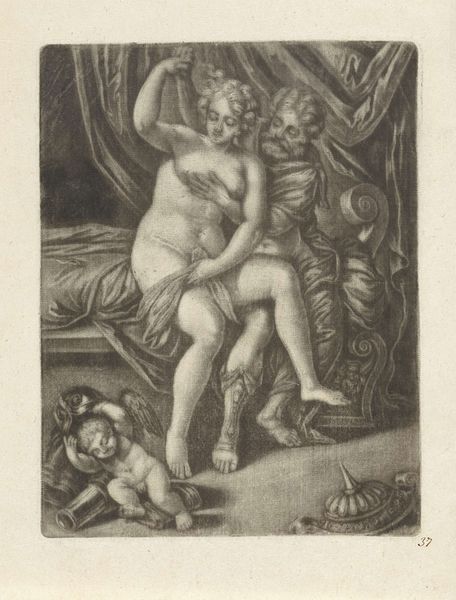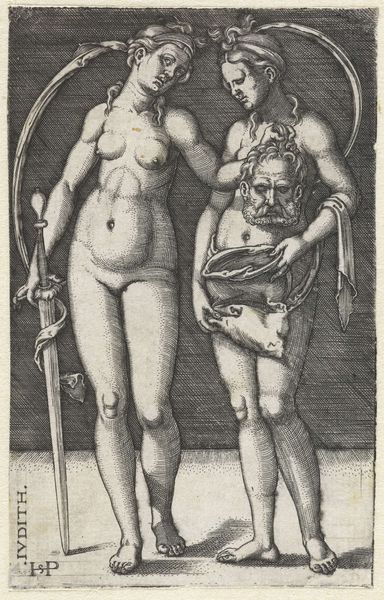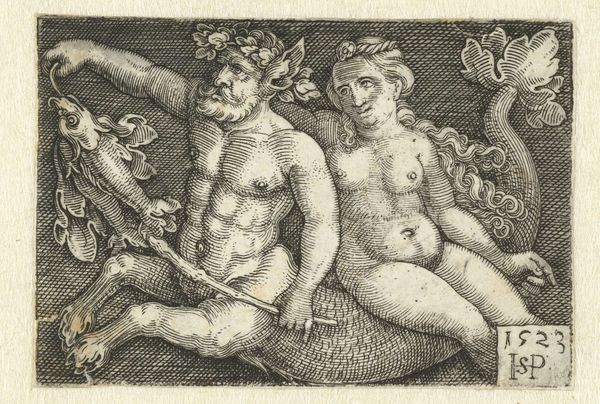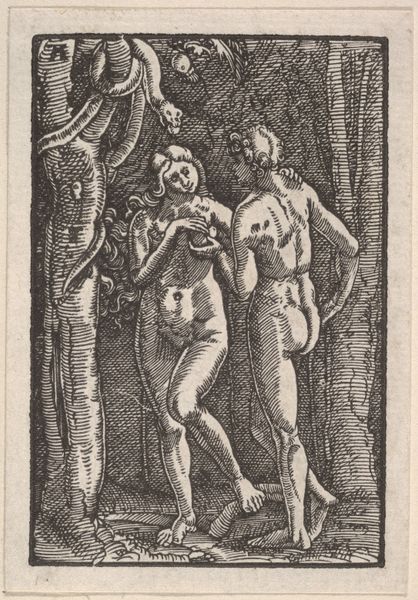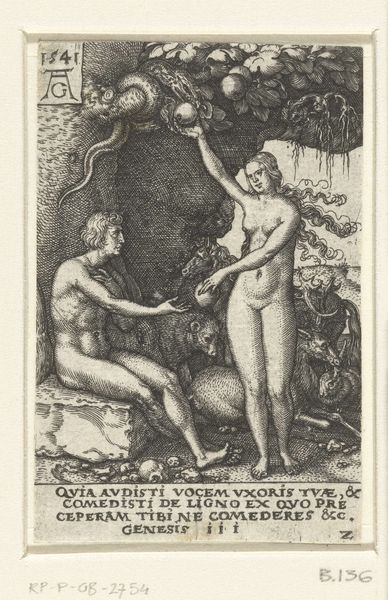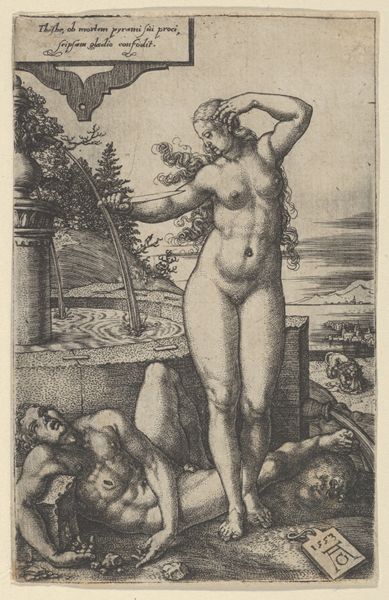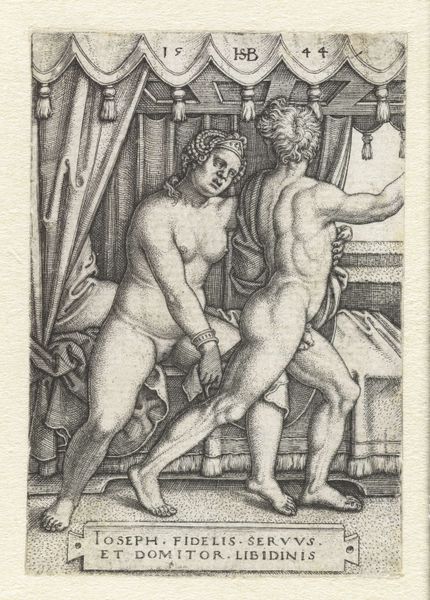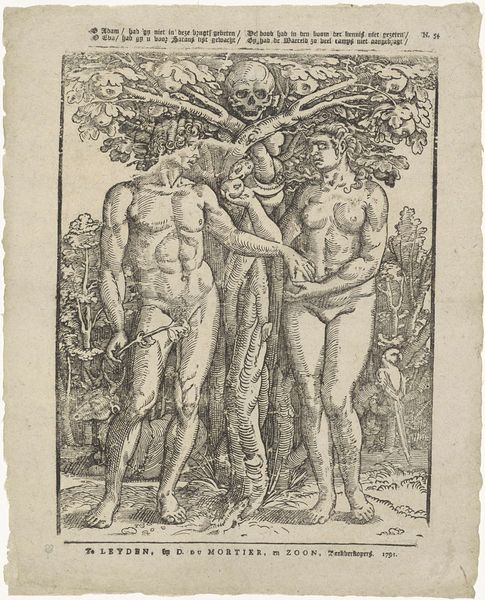
print, engraving
#
allegory
# print
#
figuration
#
northern-renaissance
#
nude
#
engraving
Dimensions: height 78 mm, width 52 mm
Copyright: Rijks Museum: Open Domain
This engraving of Orpheus and Eurydice was made by Heinrich Aldegrever in Germany, around 1538. We see Orpheus playing his violin, charming Eurydice. Let's consider the social and cultural context in which this image was made. Germany at this time was undergoing the Reformation. Artists like Aldegrever were navigating a changing world of patronage and religious belief. The classical myth would have been a familiar one, but this interpretation is unique. Notice the way Aldegrever has depicted Orpheus and Eurydice in the nude. What does the artist want to tell us about their relationship? The male gaze is directed at Eurydice, who is in a passive pose. Is this a comment on the social structures of the time? Does it critique the institutions of art? These are the kinds of questions an art historian can explore by consulting primary sources such as letters, inventories, and other documents. This can tell us more about Aldegrever's intentions and the meaning of his art. The meaning of art is contingent on its social and institutional context.
Comments
No comments
Be the first to comment and join the conversation on the ultimate creative platform.
